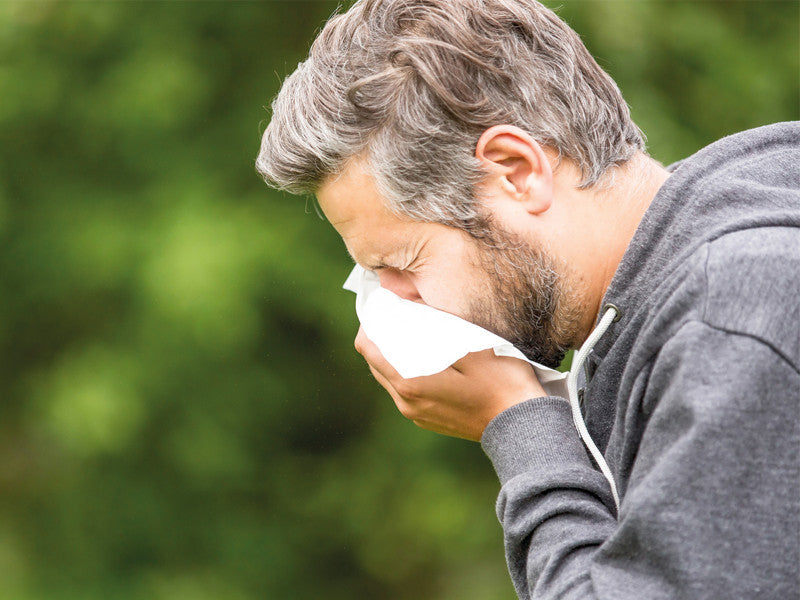Why do we get allergies?

Allergies are an overreaction of our immune system to allergens in our environment. The immune system of an allergic individual identifies everyday non-threatening allergens as a threat and creates a reaction which causes allergy symptoms.
It is thought that as many as 1 in 4 adults will develop an allergy at some point in their lives, and as many as 40% of children. The more common allergies in children will often fade away as they get older and their immune system develops, but we can develop a genuine allergy at any point in our lifetime.
Allergies also tend to run in families. You are more likely to develop an allergy if other people in your immediate family suffer with them, but it is not a guarantee.
Can we avoid developing allergies?
Taking steps to provide babies and children with the right 'anti-allergy' start in life is widely considered to be the most advantageous measure to allergy prevention.
Eating a nutritionally balanced diet has always been the go-to advice for living a healthy lifestyle, and doing so whilst pregnant can help to lower the risk of allergies in babies. Eating allergenic foods such as fish and nuts in moderation provides crucial nutrients to help foetal development.
Continuing a healthy balanced diet once the baby has arrived helps to pass on key nutrients through breast milk. Breast milk has long been considered to have significant benefits whilst a child's immune system is developing and can help to pass on a mother's immunity to infections.
Once a child reaches 4-6 months, introducing small amounts of allergenic foods into their diets will help to build a natural tolerance as they grow. By introducing these food types one at a time, you will be able to recognise any adverse reactions. If you think your child may be allergic to a certain food group, talk to your health visitor or GP for advice.
Embracing messy play and an acceptance of dirt at an early age in order to build immunity is part of a medical concept known as the 'Hygiene Hypothesis'. By encouraging children to play outdoors, you will maximise their exposure to germs and airborne allergens which in turn will help to build strong immune system, providing them with a greater advantage in later life.
For further reading, take a look at this interesting article from the NHS Choices website, examining the question: Are we too clean for our own good?


Comments on this post (0)